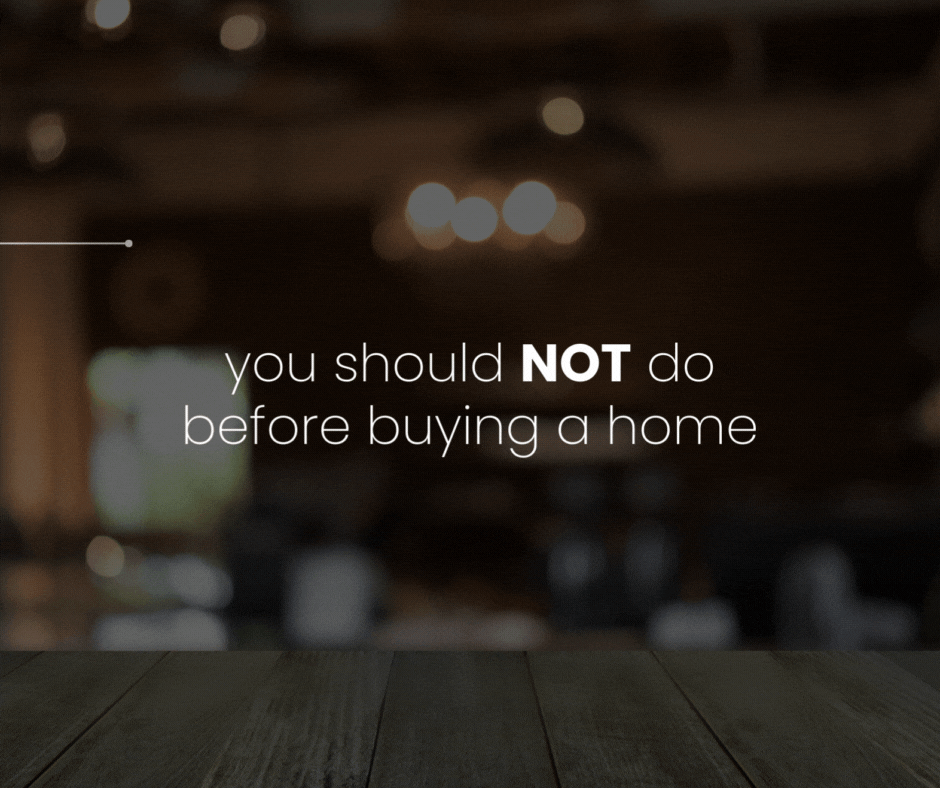2025 Homebuying Guide
2025 is shaping up to be a pivotal year for homebuyers. The higher mortgage rates of 2024 seem to be fading away as rates have been coming down...
5 min read
 Michael Nasr
October 10, 2024
Michael Nasr
October 10, 2024

Buying a home is a lengthy, complicated process. While you may buy another expensive product – such as a car – in a few hours, purchasing a home often takes months and involves walking through open houses, procuring a mortgage, negotiating a final deal, and enduring the closing process.
Because landing a home can be such a strenuous and stressful effort, homebuyers often forget there are certain steps to avoid when buying a home. Some say the biggest mistake in these competitive homebuying days is not being prepared.
Get pre-approved for a mortgage and start your journey to a new home today!
Here are the top 10 things I need to know before buying a home:
In this competitive homebuying environment, home sellers and real estate agents want to know that you have a mortgage pre-approved for the amount needed and are ready to move forward quickly to make an offer on a home. Home sellers and agents don’t want to receive offers from people who cannot afford to buy the property.
Take into account that pre-approving a mortgage may take a normal lender several weeks to complete, but Premia takes the pre-approval process to the next level so you can show sellers and agents just how serious you are about home ownership.
Down payment options as low as 3% may work fine and could potentially get you into a home much more quickly than having you work to save 20%. And getting into a home sooner allows you to build equity faster! True, mortgage insurance is required when a buyer has less than a 20% down payment.
Mortgage insurance may be able to be removed once a certain amount of equity is built up in the property, depending on factors like your loan type.
A lender may offer you a $400,000 mortgage, for example. But can you make the monthly payments, especially considering other debt you may have? And don’t forget about all of the expenses associated with home ownership, from property taxes to insurance.
Check a mortgage calculator to figure out the amount that makes the most sense for your budget and makes you feel most comfortable about being able to make your monthly payments.
Buying a home is a long-term commitment, but getting a mortgage isn’t. Keep this in mind as you’re considering your options. You may be tempted to wait for mortgage rates to come down so that your monthly payments are a little lower*. However, if you do this, you may lose out on the chance to buy a home that you love.
You may be able to refinance your mortgage if the rates come down after you close on the purchase. This may help you get a lower monthly payment. It’s kind of like breaking up with your rate and getting a new, better rate. You can also refinance to shorten your loan term, change from a variable rate to a fixed rate, and even take out cash† to use toward renovations or to consolidate debt.
Financing a big purchase before applying for a mortgage may negatively impact your FICO score and possibly impact your ability to get a mortgage at a better rate. Generally, the higher your FICO score, the better chance you have of obtaining not only a mortgage but also a lower rate‡. For example, if you buy a new $25,000 car using credit before applying for a mortgage, your credit score will be adversely impacted.
Whatever debt you take on before applying for a mortgage goes directly into the debt-to-income (DTI) ratio lenders use to understand your financial health.
Lenders are not fans of those who constantly avoid paying their credit card bills on time. They like potential customers who have been subject to debt-collection suits even less.
Check your credit report to see where you stand. If there are errors, make sure to request that they be corrected. And do your best to pay off your credit card statements each month before you apply for a mortgage.
If you have a credit card with a $10,000 limit, don’t spend $9,000 on it before you have closed on your house. Any purchases that add up to put you near your spending limit will trigger lower FICO scores and thus a higher rate of interest on your mortgage. Try not to spend more than 30% of your limit on any credit card, and it will help your FICO score if you pay off your card balances each month.
At the same time, closing an active credit account can send a sign that you’re not able to pay your statement. This will also impact your credit history because it will be removed from your credit report. Once you’ve closed on the house, however, closing credit card accounts is fine.
You decided to be a cosigner on a loan because the person getting the loan couldn’t qualify on his or her own – whether because of his or her credit history or other factors. A cosigner effectively acts as a backup source of repayment should the primary borrower fail to keep up with installments.
If you are a cosigner on a loan, that will hamper your chances of getting a mortgage. The lender may not think you will be able to pay those potential debts along with the principal and interest on your mortgage.
Lenders want to ensure that a borrower can pay off all of the principal and interest on a mortgage. Having an employment history of at least two years is the standard requirement to receive a mortgage backed by Freddie Mac or Fannie Mae. It is possible to get a mortgage without that employment history, but that will require greater scrutiny to get approved.
Changing jobs, changing companies or changing careers is not always a negative, as long as the borrower continues to have the same or greater earning potential. If at all possible, you should not quit a job without having a written offer in hand for the next position while searching for your house.
Home inspections protect the buyer by unearthing flaws that may be expensive to correct. Don’t expect the seller to set one up; the home inspection is the buyer’s responsibility. The expert you hire will check everything from the electrical systems to the plumbing to the major appliances.
The cost of the home inspector, which is often a few hundred dollars, is well worth knowing that you won’t be on the hook for thousands of dollars of repairs.
How can I start the mortgage application process?
Buying a home is one of the biggest investments you’ll ever make – if not the biggest. You know the basics about how to proceed – finding a real estate agent, checking out possibilities online – but knowing what to avoid is just as important. By following the guidance outlined in these 10 steps of what not to do when buying a home, you will set yourself up for success as you start searching for your dream home.
Are you ready to get started now? Get pre-approved today and get on the path to homeownership!
* Savings, if any, vary based on the consumer’s credit profile, interest rate availability, and other factors. Contact Premia Relocation Mortgage for current rates. Restrictions apply.
† Using funds from a Cash-out Refinance to consolidate debt may result in the debt taking longer to pay off as it will be combined with the borrower’s mortgage principal amount and will be paid off over the full loan term. Contact Premia Relocation Mortgage for more information.
‡ Premia Relocation Mortgage does not provide credit counseling or credit repair services.
All information provided in this publication is for informational and educational purposes only, and in no way is any of the content contained herein to be construed as financial, investment, or legal advice or instruction. Premia Relocation Mortgage does not guarantee the quality, accuracy, completeness or timeliness of the information in this publication. While efforts are made to verify the information provided, the information should not be assumed to be error-free. Some information in the publication may have been provided by third parties and has not necessarily been verified by Premia Relocation Mortgage. Premia Relocation Mortgage does not assume any liability for the information contained herein, be it direct, indirect, consequential, special, or exemplary, or other damages whatsoever and howsoever caused, arising out of or in connection with the use of this publication or in reliance on the information, including any personal or pecuniary loss, whether the action is in contract, tort (including negligence) or other tortious action. Premia Relocation Mortgage does not provide tax advice. Please contact your tax adviser with any tax-related questions.

2025 is shaping up to be a pivotal year for homebuyers. The higher mortgage rates of 2024 seem to be fading away as rates have been coming down...

Buying a home is one of life’s biggest milestones—but it can also be one of the most complex. Unlike buying a car or another large purchase that...

We’ve all been (virtually) there – you’re about to click purchase on a product you found online, and you pause. You think to yourself, “That’s an...